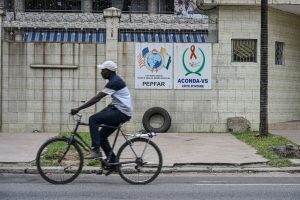In late July, The New York Times published an article regarding the State Department planning process for PEPFAR, indicating that they plan to discontinue the program in 2-8 years, depending on the country. PEPFAR resources would be transformed into a platform for rapid disease detection and outbreak response, establishing new markets for American pharmaceuticals and technologies, and encouraging privatization of HIV services. The plans also call for an abrupt termination of funding for most efforts to prevent new infections, especially for sex workers, men who have sex with men, and discordant couples.
Some aspects of the transformed PEPFAR, however, might be welcomed, including integrating HIV programs into national health programs, including data collection. This approach could enable nations to reimagine aid, attain greater autonomy, and minimize foreign influence.
Overall, the plan suggests terminating the conventional nature of PEPFAR as a public health initiative, reallocating more HIV care to private-sector providers who may procure medications and diagnostics at the prices negotiated by PEPFAR for the public sector, including lenacapavir, the new biannual HIV prevention injection for which PEPFAR has committed to its manufacturer, Gilead Pharmaceuticals. The planning documents anticipate a 42 percent decrease in PEPFAR’s existing budget of $4.7 billion, a target articulated by Secretary of State Marco Rubio. The documents also indicated that the new PEPFAR will classify countries according to their profiles, which will dictate the program duration in each country, spanning from three to eight years. Proposed modifications suggest that HIV aid will be integrated with programs addressing malaria, tuberculosis, and other health issues, rather than being managed independently.
The sudden cessation of support for the NGO groups collaborating with PEPFAR has significantly impaired the program and weakened the global HIV response. Numerous NGO programs upon which PEPFAR depended have ceased, or temporarily suspended operations during the past five months of uncertain assistance. Moreover, a quick transition could pose a significant risk, since numerous low-income nations have indicated their inability to sustain PEPFAR’s services.
The plan recognizes that the timelines are ambitious. On the contrary, this future presents opportunities.
Read the full article here U.S. Quietly Drafts Plan to End Program That Saved Millions From AIDS
